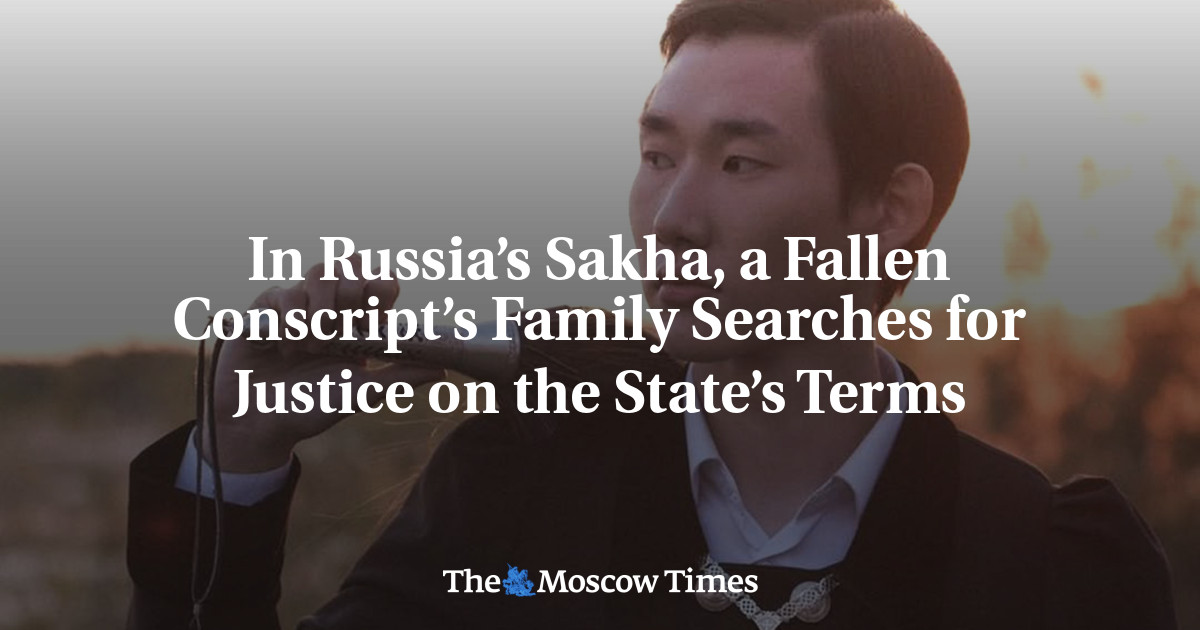
In Russia’s Sakha, a Fallen Conscript’s Family Searches for Justice on the State’s Terms
How did your country report this? Share your view in the comments.
Diverging Reports Breakdown
In Russia’s Sakha, a Fallen Conscript’s Family Searches for Justice on the State’s Terms
Aman Malyshev, 22, is one of at least 173 conscripts killed since Russia’s full-scale invasion of Ukraine. At the start of the invasion, many expected that mothers and wives of soldiers would become a driving force of the country’s anti-regime resistance. Yet their role in undermining the regime and its war narrative has otherwise been marginal. Whether due to their grief or an understanding that publicly criticizing the war would only bring repression, many choose to mourn and voice their grievances against the government behind closed doors. “Soldiers’ wives and mothers…who do make some kind of a protest are very careful to present it as the protest of a loyal, patriotic group of women,” explained Jenny Mathers, an expert on Russian civil-military relations and lecturer at Aberystwyth University in Wales.“We saw our Aman off to military service in Ussuriysk in June 2024 and never saw him again,’ a woman named Inna wrote on Instagram on April 21.
Aman Malyshev in military uniform. Social media
Malyshev is one of at least 173 conscripts killed since Russia’s full-scale invasion of Ukraine despite Moscow’s repeated promises that conscripts would not face direct combat, according to a tally by independent news outlet Vyorstka. At the start of the invasion, many expected that mothers and wives of soldiers like Malyshev would become a driving force of the country’s anti-war and anti-regime resistance, similar to the campaign against Russia’s war in Chechnya waged by the Committee of Soldiers’ Mothers in the 1990s. Women indeed formed the backbone of the nationwide anti-mobilization rallies of September 2022 — including a 500-person strong gathering in Sakha — as well as subsequent protests demanding the return of mobilized soldiers from the front lines. Yet their role in undermining the regime and its war narrative has otherwise been marginal. Whether due to their grief or an understanding that publicly criticizing the war would only bring repression, many choose to mourn and voice their grievances against the government behind closed doors. “Soldiers’ wives and mothers…who do make some kind of a protest are very careful to present it as the protest of a loyal, patriotic group of women,” explained Jenny Mathers, an expert on Russian civil-military relations and lecturer at Aberystwyth University in Wales.
Aman Malyshev’s mother Anna, who according to social media has two other underage sons, appears to be no exception. “My deep gratitude to all those helping us spread information about our son. But I would like to clarify our position and ask that it be respected,” Anna Malysheva wrote in an Instagram post from April 22. “I do not want my son’s name to be manipulated, or for our story to be used to discredit the current government or to turn people against the authorities. That is not why we made Aman’s story public,” she went on. She said she wanted the commander of the military base in Ussuriysk — where her son was sent for his compulsory military service — to be “punished” for sending him to the “counterterrorism operation zone,” using the Kremlin’s term for areas of Ukrainian counterattacks on Russian soil. She also accused Aman’s platoon commander of “sending her son and his fellow soldiers to their certain death” during a drone attack that hit a car in which he was riding. “I am convinced that specific individuals on the ground are to blame for our situation, and I want their guilt to be proven and for them to receive fair punishment,” she said. In a since-deleted Instagram Story seen by The Moscow Times, Anna Malysheva said she had written her original post in response to being approached by “a foreign agent journalist.” “She’s positioning herself as someone who’s trying to help the state get to the bottom of this puzzle of who is guilty [for her son’s death],” expert Mathers told The Moscow Times. Mathers said Malysheva’s actions are largely consistent with those of other women and military families who criticize the state but are careful to differentiate themselves from activist groups like Feminist Anti-War Resistance or other anti-war Russian opposition figures who adamantly oppose Putin’s regime.
The women-led anti-mobilization protest on the central square in Yakutsk, Sept. 25, 2022. @avtozaklive
Although this strategy of “patriotic dissent” may seem puzzling to some, Mathers believes that it has proven effective in forcing the state to change its behavior regarding engaging conscripts in active combat. The relatively modest number of conscripts killed in the war, compared to overall Russian military casualties, is evidence of that. “I don’t think it’s going to bring the regime down immediately. But it is a way of holding the state to account … [in] quite a modest way, not a big, dramatic ‘We put thousands of people on the streets and [are] demanding blood’ [way],” said Mathers. “They’re doing something which Navalny also did, but differently — using the state’s own laws and the state’s own commitments to … hold it accountable,” she added.
